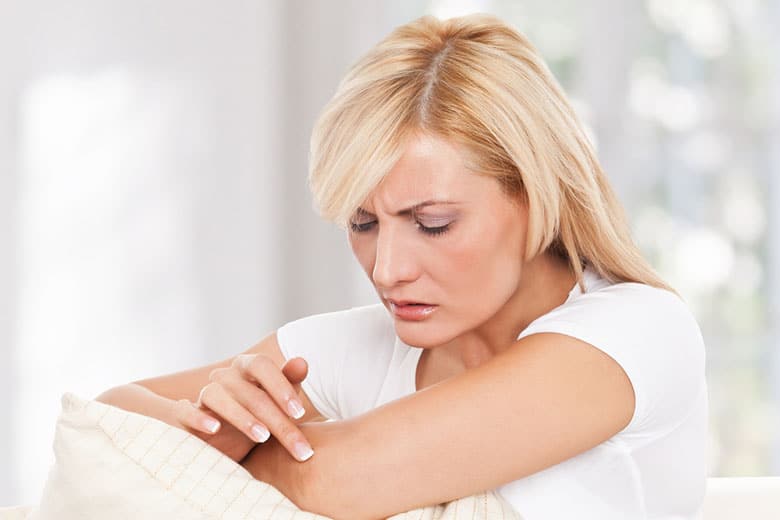Hormones can have a significant impact on skin health. Hormonal fluctuations and imbalances can affect skin function, including oil production, inflammation, collagen synthesis, and overall skin appearance. Here are some ways in which hormones can impact skin health:
Androgens, such as testosterone, can stimulate the sebaceous glands in the skin to produce more sebum (oil). Excess sebum can contribute to clogged pores, leading to acne breakouts and oily skin.
Hormonal acne is often associated with hormonal imbalances, such as during puberty, menstrual cycles, pregnancy, or menopause. Fluctuations in estrogen, progesterone, and androgen levels can influence the development of acne by increasing sebum production, promoting inflammation, and affecting the skin’s response to bacteria.
While the exact cause of rosacea is not fully understood, hormonal influences can exacerbate the condition. For example, hormonal changes during menopause or fluctuations in estrogen levels can contribute to increased skin sensitivity, redness, and flushing associated with rosacea.
Hormonal imbalances can contribute to chronic inflammation in the body, manifesting in the skin. In addition, inflammatory skin conditions may be influenced by hormonal factors.
Hormonal fluctuations, particularly during puberty, pregnancy, or menopause, can impact the severity and frequency of eczema flare-ups. In addition, hormonal imbalances may contribute to changes in the skin barrier function and inflammation, exacerbating eczema symptoms.
Hormonal changes with age, such as declining estrogen levels during menopause, can affect collagen production and skin elasticity. Lower estrogen levels can lead to skin thinning, reduced moisture retention, and increased wrinkle formation.
Click Here to Learn How Hormone Testing Can Help You
Melasma is a skin condition characterized by dark patches or hyperpigmentation, typically occurring on the face. Hormonal changes, particularly elevated estrogen and progesterone levels during pregnancy or with hormonal contraceptive use, can trigger melasma.
Hormonal fluctuations can make the skin more sensitive and reactive. Some women may experience increased skin sensitivity and irritation during certain phases of their menstrual cycle.
Managing hormonal effects on skin health often involves a multifaceted approach, which may include the following:
- Balancing hormone levels through medication or hormone replacement therapy under the guidance of a healthcare professional.
- Adopting a skincare routine tailored to your skin type and concerns, including gentle cleansing, regular exfoliation, and appropriate moisturization.
- Using topical treatments, such as retinoids or anti-inflammatory ingredients, as recommended by a dermatologist.
- Adopting a healthy lifestyle, including a well-balanced diet, regular exercise, stress management, and adequate sleep, can help support hormonal balance and overall skin health.
- Avoiding triggers that worsen skin conditions, such as excessive sun exposure, smoking, or certain skincare products that may irritate the skin.
It’s important to note that while hormonal influences can contribute to these skin conditions, they are often multifactorial, and other factors such as genetics, environmental triggers, and lifestyle choices can also play a role. Therefore, if you have concerns about your skin health or suspect that hormonal imbalances may be affecting your skin, it is advisable to consult with a healthcare professional who can evaluate your specific situation and provide appropriate guidance and treatment options.

